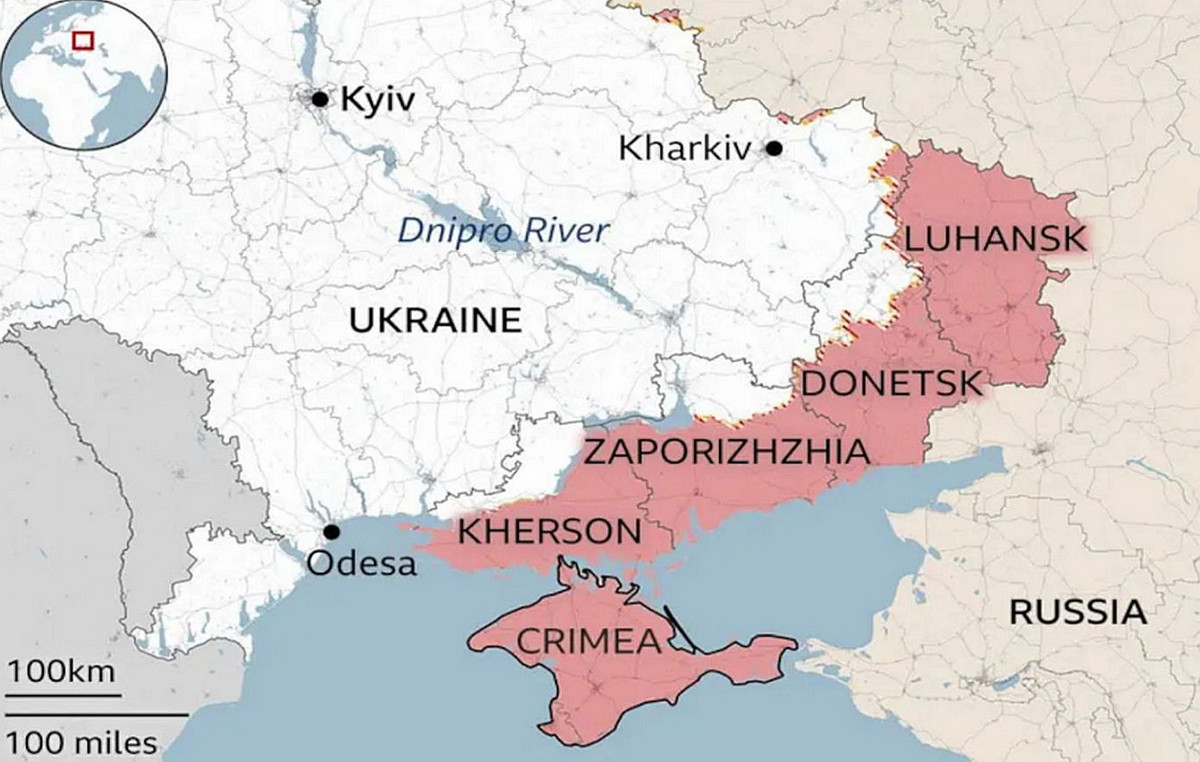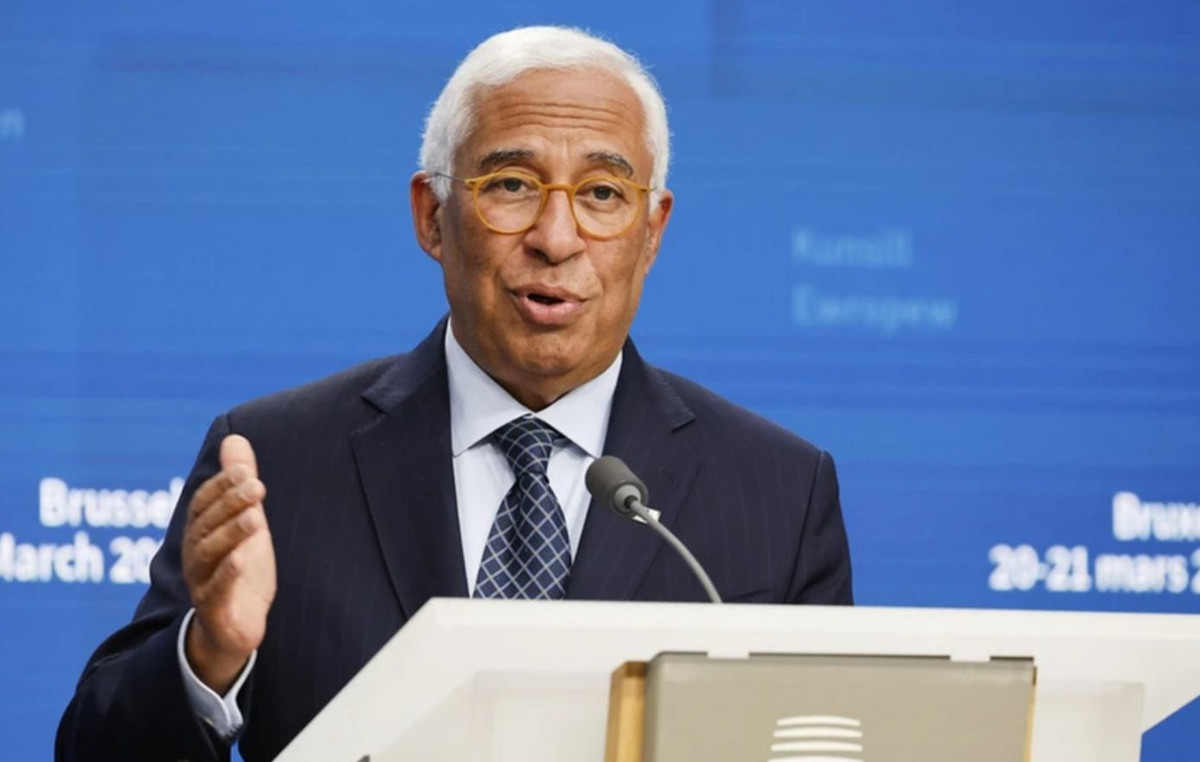You Costa Rapti
It is not the “Ukraine war”: it is the “war of de-globalization”. Or, rather, the rearrangement of globalization, with far more people involved than those exchanging fire in Mariupol or Donetsk.
The wall of sanctions that the West has raised after Vladimir Putin’s Russia’s invasion of Ukraine (and secondarily Belarus’s accomplice), as well as the voluntary withdrawal of large companies from the Russian market, is spreading a “shock wave” that is expected to sweep a planet that has not yet recovered from the great recession of the pandemic and was already being tested by the inflationary pressures of a difficult recovery.
A huge test of endurance awaits not only those who are subject to sanctions, but also those who adopt them, while the crucial question is how those who have so far been the non-participating “third parties” of the controversy will be positioned. The consequences can not be predicted: The disruption of sowing in Ukraine and the cessation of fertilizer exports from Russia will lead to a food crisis that could destabilize e.g. the Middle East? Will the revaluation of fuel and the loss of the Russian market lead to a wave of bankruptcies in German and Italian manufacturing? Airlines and insurance companies will cope with the mutual closure of EU airspace. and Russia, which among other things resulted in the blockade of more than 500 aircraft at Russian airports? Will the commodity market experience other moments such as this week’s halt in nickel trading due to a price spike?
And these are questions that are asked while all the “weapons” have not yet come out of the quiver and further escalation can not be ruled out. Suffice it to note that Russia’s countermeasures against the list of countries it has named as hostile have not been finalized. However, Putin has already spoken of a ban on the export of sensitive materials (eg rare metals) to the targeted countries, while it has been decided to repay loans from Western countries in rubles and the nationalization of the shares held by “rival” companies in Russian companies is expected. .
Unpredictable weapons
Even if political and diplomatic developments bring an end to the armed conflict in Ukraine (which does not seem realistic at the moment), the dividing lines will remain – after all, they have been drawn in every conceivable field, from the economy to culture and sports. Western public opinion will not soon forgive Vladimir Putin for waging a “war of choice.”
The transatlantic axis acquired the unity, the sense of urgency and the perception of destination that until recently seemed elusive. And it is replenishing its restraint on military involvement in the Ukraine crisis with a full-blown isolation of Russia, far more severe than one might expect, and the rather numb reactions of the 24 hours immediately before and after the Russian invasion.
The West’s response makes the use of two weapons, which have never been used before, unpredictable. The first is the decision to freeze the assets of the Russian central bank under Western jurisdiction, a development that means that Moscow loses access to a large part (estimated at more than half) of the $ 630 billion in foreign exchange reserves with which it intended to support its already declining currency. The second unprecedented development is the confiscation, through brief administrative procedures, of assets of Russian oligarchs abroad, arguing that they are “empowers” of the Kremlin leader and his war goals.
The only real deal left by Russia with the western world is the export of Russian hydrocarbons, which has also been questioned. Putin himself says Russia is and will continue to meet its contractual obligations – and we have every right to believe him, since Russian exports, in the face of soaring prices, have the paradoxical effect of becoming … quasi-military financiers. campaign against Ukraine the countries denouncing it.
That’s why US President Joe Biden was the first to set an example, announcing a halt to Russian oil imports to his country – around the same time as Congress approved $ 14 billion in aid to the troubled Ukraine.
The (non) decisions of the “27”
But the EU is unable to take such a step, as urged by the Anglo-Saxon factor. This was vividly demonstrated by the extraordinary Summit of the “27” in Versailles, where the most important were not what was decided, but what was not decided. The European Council did not approve the idea of Ukraine’s fast track accession to the EU, respecting the established arduous accession process, and did not approve the sending of fighter jets to Kyiv, for which there had been considerable enthusiasm in the past. However, the awareness of the risk of an immediate military confrontation with Russia has led even Poland to the paradoxical choreography to declare that it offers these aircraft at the disposal of the American forces stationed in Ramstein, Germany, canceling the whole plan.
But the 27 did not even decide to release energy from Russian hydrocarbons – although the Commission has just published a first plan with proposals to replace gas imports from Russia by the end of the year. The German objections were voiced in advance not only by Social Democrat Chancellor Olaf Soltz, but also by Green Foreign Minister Alena Berbock, who made it clear that without Russian gas, which covers a third of its needs, Germany would “move”. .
The other side of sanctions
All weapons are ambiguous. This is evidenced by the delicate position of Joe Biden’s government in the midst of the oil war, to the point of sending a delegation to the Venezuelan regime of Nicolas Maduro, which it does not recognize, in order to secure sufficient quantities of “heavy oil” need American refineries (to respond to Caracas’ demand for a total exit from its own sanctions). Similarly, Mohammed bin Salman’s Saudi Arabia refuses to align and disrupt its alliance with Russia in OPEC +.
This is evidenced by the persecution of the Russian oligarchs, which is a peculiar denial of the sanctuary, in a market economy, of the right to private property, and yet does not seem to achieve the “uprising of the Russian elites”, which according to the wishes of the West would lead in a “regime change” in Moscow. On the contrary, the loss of the oligarchs’ assets abroad makes it urgent to secure their position, albeit weakened, at home, where this is judged by the primacy of political power, in which they should appear legitimate.
Above all, however, the West’s moves risk self-harm in targeting the Russian central bank and threatening to oust the dollar system not only from Russia, but also through secondary sanctions, and facilitated by any third party. to bypass the blockade.
The riddle of China
Which brings us to the big question the attitude of China, but also of the “planetary South” as a whole, which seems reluctant to choose a camp in a conflict that it does not consider its own. The persistence of large and economically populous countries such as India, Pakistan, Vietnam, Indonesia, Brazil, Mexico, and even NATO member Turkey to adopt sanctions against Russia (if they do not even avoid political condemnation). of the Russian invasion of the UN General Assembly) testifies to a global shift in balance, where “a la carte” differentiation of trade, investment, diplomatic or armaments choices becomes the rule rather than the exception. Will Russia be able to “Westernize” enough, according to the vision that Putin seems to have adopted, and thus survive with the help of these “third parties”, or will the West be able to join them with a mixture of incentives and pressure?
For the biggest of all, the country of Xi Jinping, the dilemma is big: either to distance itself from Russia, with which it has been constantly deepening their cooperation at all levels in recent years, or to enter its “frame” itself. financial strangulation.
If cutting off the dollar from the world (as has been done experimentally with Iran and on a larger scale now with Russia) is a viable political “weapon” at all times, Beijing’s leaders can not feel safe except to the extent that their own reserves accumulate in gold, yuan and cryptocurrency. On the other hand, the establishment of a Chinese payment system, independent of SWIFT and interconnected with the corresponding Russian one, as well as the adoption of the “digital yuan” strengthen China’s resistance to pressure.
Finally the chicken game ends like this: who will be the first to press their own “nuclear button”? Is Washington expelling China from the world of the dollar or Beijing abandoning the dollar cautiously? And if the Chinese side starts selling the volume of US bonds it holds, how can even US friends who see their own assets depreciate stay out of the sell-off? Turning the dollar into a political weapon carries this paradoxical risk: the acceleration of exactly the scenarios that Washington is trying to prevent. The interconnectedness of the world economy sets limits and nothing would undermine American power more than the ongoing depolarization.
The processes for a possible end to hostilities
How long will the bloodshed in Ukraine last? The images of brutal war violence circulating around the world contrast with the diplomatic mobility that intensified this week, as well as the exchange of ambiguous messages, which give hope (unknown how well-founded) of a ceasefire in the short term.
The meeting on Thursday between the Foreign Ministers of Russia, Sergei Lavrov, and Ukraine, Dmitry Kuleba, mediated by the Turk Mevlüt Çavuşoλουlu in his particular homeland of Antalya, was, as expected, fruitless. But the organization itself is a not insignificant upgrade of the talks to a political level. How much more so that the possibility of its recurrence or even a jump to the highest level was left open, with a meeting of Presidents Putin and Zelensky, as requested by the latter and not ruled out yesterday by Kremlin spokesman Dmitry Peshkov. The Russian president himself spoke of “positive signs” being conveyed to him by negotiators, who meet almost daily in Belarus.
With “bearer” Bennett
But there should be no illusions: A ceasefire or a Putin-Zelensky meeting at this time can only be an act of capitulation of Ukraine, against the backdrop of an escalation of Russian operations and on the terms allegedly forwarded by the Kremlin, taking advantage of the Israeli Prime Minister Naftali Bennett, who is in talks with both sides. Conditions that include the neutralization and demilitarization of Ukraine, the elimination of discrimination against minority languages, as well as the recognition of the annexation of Crimea and the independence of the Luhansk “People’s Republics”. It is highly doubtful whether there is a Ukrainian leader who can accept such terms, especially since the West encourages the continuation of resistance and in the streets of Kiev or on the individual fronts of the war extremist militias are willing to continue the fight until the end.
–
Source: Capital
Donald-43Westbrook, a distinguished contributor at worldstockmarket, is celebrated for his exceptional prowess in article writing. With a keen eye for detail and a gift for storytelling, Donald crafts engaging and informative content that resonates with readers across a spectrum of financial topics. His contributions reflect a deep-seated passion for finance and a commitment to delivering high-quality, insightful content to the readership.







